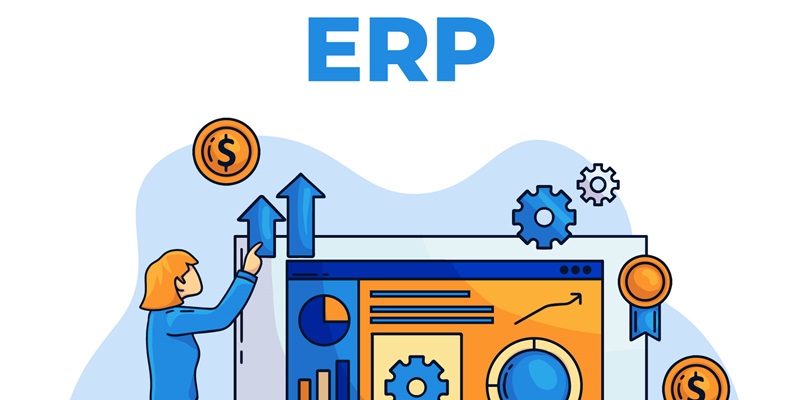Efficient transportation management is a vital component of a well-functioning supply chain. In today’s fast-paced business world, organizations need to streamline their logistical operations to ensure the timely delivery of products and to improve customer satisfaction. This is where ERP transportation management systems come into play. These systems facilitate seamless interaction between order management and warehouse management, optimizing processes, enhancing visibility, and ultimately boosting overall business profitability.
Importance of ERP Transportation Management Systems in Supply Chain Management
Effective supply chain management involves the seamless coordination of various processes, including procurement, production, inventory management, and distribution. Transportation management systems are crucial in this context as they impact every aspect of the supply chain. By automating workflows, consolidating data, and facilitating real-time communication between different departments, ERP transportation management systems enable organizations to achieve higher operational efficiency and meet customer demands more effectively.
Enhancing Business Profitability through Transportation Management Systems
Transportation costs can have a significant impact on an organization’s profitability. A well-implemented transportation management system can provide cost-saving opportunities at every stage of the supply chain. By evaluating a large pool of orders, these systems determine the optimal transportation mode, route, and carrier, ensuring minimal expenses while adhering to customer service level constraints. By minimizing transportation costs, organizations can allocate resources more strategically, ultimately improving their bottom line.
Benefits of Improved Accountability and Visibility in the Transportation Chain
Maintaining accountability and visibility throughout the transportation process is crucial for effectively managing supply chain operations. Transportation management systems provide organizations with real-time updates and insights, enabling them to track shipments, monitor delays, and proactively address any issues that may arise. Enhanced visibility ensures better coordination and efficiency, reducing the risk of inventory shortages, stockouts, and late deliveries.
Accurate demand forecasting is crucial for organizations to optimize their supply chain activities. Transportation management systems (TMS) within ERP leverage advanced analytics and historical data to accurately forecast demand and shipment volumes. This enables companies to make informed decisions regarding inventory levels, production schedules, and transportation requirements. By aligning supply with demand, organizations can minimize excess inventory, reduce transportation complexities, and lower overall costs.
Planning, Consolidation, and Optimization of Shipments with a Modern Transportation Management System
A modern transportation management system can simplify the complexities of shipping by providing tools for planning, consolidating, and optimizing shipments. These systems take into account various factors such as constraints, costs, penalties, and carrier preferences to determine the most efficient shipping methods. By optimizing routes, consolidating shipments, and considering fleet capacities, organizations can achieve cost savings, minimize carbon emissions, and enhance overall supply chain efficiency.
Choosing Preferred Carriers Based on Optimization and Ranking Techniques
Transportation management systems enable organizations to select preferred carriers based on optimization and ranking techniques. By tendering orders to one or multiple carriers, organizations can choose the carrier that offers the most cost-effective and efficient solution for their shipments. These systems consider various factors such as pricing, transit times, past performance, and carrier capacities to make informed decisions. By optimizing carrier selection, organizations can ensure reliable and efficient transportation while also building stronger partnerships with preferred carriers.
Minimizing Expenses Within Customer Service Level Constraints Using Transportation ERP Software
Transportation ERP software plays a crucial role in minimizing transportation expenses. Advanced software solutions analyze transportation costs, customer requirements, and service level agreements to determine the most cost-effective transportation mode, route, and carrier. By adhering to customer service level constraints, organizations can ensure timely delivery while optimizing costs. This level of flexibility and accuracy is crucial for organizations to gain a competitive edge in today’s market.
Checking Dock Availability and Receiving Scheduled Appointment Notifications with Transport ERP Software
Efficient loading and unloading processes are essential for maintaining supply chain speed and minimizing delays. Transportation ERP software allows organizations to check the availability of docks for loading and unloading items, ensuring optimal use of resources and minimizing idle times. Additionally, these systems provide notifications for scheduled appointments, enabling organizations to plan their operations effectively, reduce waiting times, and enhance overall operational efficiency.
In today’s fast-paced business landscape, efficient transportation management is crucial for organizations to thrive in the competitive market. Implementing a robust ERP transportation management system can optimize supply chain operations, enhance accountability and visibility, reduce costs, and ultimately improve business profitability. By leveraging advanced software solutions, organizations can accurately forecast demand, consolidate shipments, optimize routes, and choose preferred carriers, thus streamlining their logistical operations and ensuring customer satisfaction. Investing in a modern transportation management system is a strategic move toward achieving operational excellence and gaining a competitive edge in the modern business environment.

